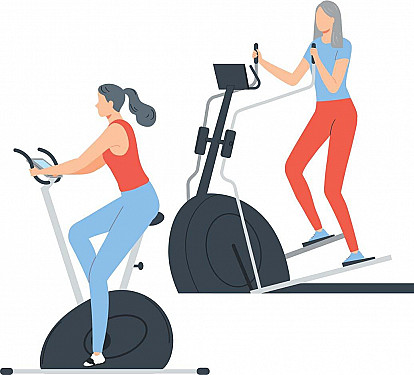Taking charge of your health
Top 5 tips to help you become proactive in your health care.
We rely on doctors and other providers to diagnose and treat medical conditions, but the most important person in your health care is you. "Being proactive in your health care empowers you," says Dr. Julie Silver, an associate professor at Harvard Medical School. "We can't completely control our health, but there are things that we can take charge of that will make a positive difference." By starting with a few small changes, you'll gain a sense of control quickly.
1 Keep track of your health information
Keep a written record of your health: a current list of prescriptions and supplements that you take; when your doctor wants you to report any measurements you make at home such as your weight, blood pressure, or blood sugar; when each of your last screening tests was done. Doctors who use electronic health records can print these out for you.
Your individual targets for measurements made at home may vary depending on your age and overall health, but for most adults blood pressure should be less than 120/80 mm Hg. You're considered to have impaired fasting glucose, part of the definition of prediabetes, if your fasting glucose level is between 100 and 125 mg/dL. And your cholesterol levels are in the healthy range if the HDL is above 40 mg/dL and the LDL is below 100 mg/dL.
Recommended* health screenings |
*Your doctor may recommend more frequent screenings depending on your health. |
2 Don't miss your screening tests
Your doctor should set targets for how often you need different screening tests. Check with your doctor if you think you're due for a test. See our chart on this page for general recommendations.
3 Speak up about your health
Ask questions and state preferences when it comes to treatment. Share new symptoms in detail with your physician. And if your doctor orders tests, here are some important questions to ask: What do you think the symptoms indicate? Why is this test necessary? What therapies are available? What is the prognosis? Are there any additional costs beyond my anticipated insurance reimbursement?
4 Get moving
Regular exercise has more power to protect your health than any medicine ever invented. It reduces your resting heart rate, and allows your heart to work more efficiently. Exercise also lowers blood pressure and improves your cholesterol and the way you process blood. That can help prevent heart disease, stroke, and some forms of dementia. Exercise also causes nerve cells to release proteins called neurotrophic factors. Research in lab animals has shown these proteins stimulate the growth of new brain cells, improve neural connections in the brain, and help to regulate metabolism, energy, and mood. Exercise may also delay cognitive decline.
Strive for at least 150 minutes per week of moderate-intensity exercise, such as brisk walking. If you're unable to get aerobic exercise because of a health condition, weight lifting has also been shown to be effective at staving off diabetes and osteoporosis.
5 Eat your way to good health
Get rid of the junk—saturated fats, high-sodium foods, and prepackaged foods. Replace them with fresh, natural food. The Harvard School of Public Health recommends at least 4½ cups of vegetables and fruits a day, including dark leafy greens, and anything that's a rich yellow, orange, or red color, such as tomatoes, oranges, strawberries, red peppers, sweet potatoes, carrots, and bananas. The Centers for Disease Control recommends keeping protein to 10% to 35% of your daily diet, and of that, the healthiest sources of proteins include lean meats, poultry, and fish, and plant-based proteins, such as nuts and beans.
Your diet is also linked to your weight, and maintaining a healthy weight has a direct impact on your health. Weight loss is good for your blood pressure and your cholesterol, for processing glucose and insulin, and for reducing inflammation and relieving joint pain.
"Taking charge of your health involves changing specific behaviors," says Dr. Silver. "This takes effort, but over time becomes a habit that is really simple. The hard part comes first—changing what you are doing. But after a while, you'll do it without much thought."
Disclaimer:
As a service to our readers, Harvard Health Publishing provides access to our library of archived content. Please note the date of last review or update on all articles.
No content on this site, regardless of date, should ever be used as a substitute for direct medical advice from your doctor or other qualified clinician.















